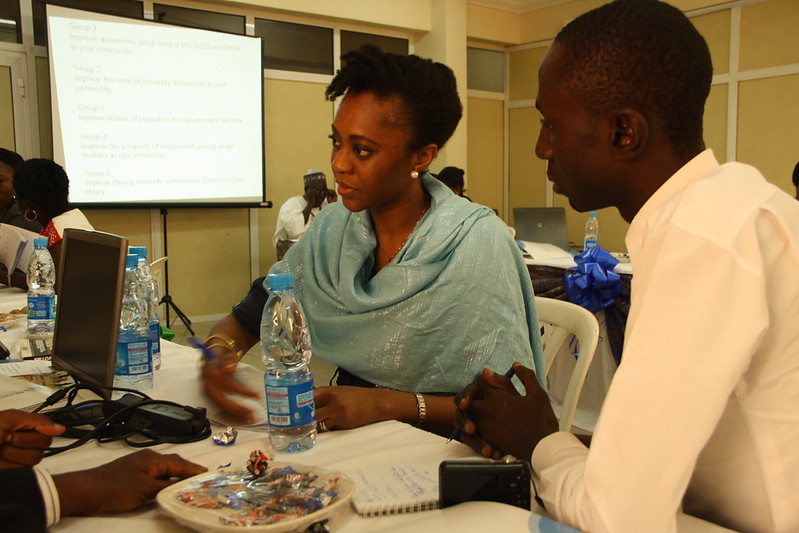Empowering Youth Leadership in Africa
 The global youth population, ages 15 to 24, currently stands at approximately 1.2 billion, with the majority residing in developing countries. Africa boasts the world’s youngest population, with 60% of its citizens under the age of 25, and a median age of about 19 years, compared to the U.S. median age of 39 years. This demographic provides African countries with unique opportunities and challenges in harnessing the potential of their youthful population, especially in empowering youth leadership.
The global youth population, ages 15 to 24, currently stands at approximately 1.2 billion, with the majority residing in developing countries. Africa boasts the world’s youngest population, with 60% of its citizens under the age of 25, and a median age of about 19 years, compared to the U.S. median age of 39 years. This demographic provides African countries with unique opportunities and challenges in harnessing the potential of their youthful population, especially in empowering youth leadership.
Challenges in Low-Income African Countries
The median age of Africa’s leaders is approximately 63 years old. This age disparity underrepresents Africa’s youth population. According to Brookings, 80 million young Africans live in extreme poverty and face concerns of insufficient economic opportunities and deteriorating education systems, especially in rural areas. There are also high levels of gender inequality for young women in Sub-Saharan Africa. Young women handle the majority of household tasks such as childcare, cooking, securing water and more. This results in lower employment rates than their male counterparts. This often prevents them from obtaining an education or securing paid employment. According to the International Labor Organization (ILO), the inability of young people to secure employment, get an education or receive training, can result in present and future limitations.
Youth Leadership
By providing opportunities for youth to actively participate in decision-making processes, it can help them feel included in their governments. The United Nations (U.N.) Under-Secretary-General, Rosemary DiCarlo, stresses that there must be more support and investments in youth as “Investing in youth is investing in peace.” She also stressed the importance of acknowleding young people’s voices and perspectives in leadership positions.
Authorities could prioritize and promote education by actively eliminating barriers, especially for women. Harmful social norms and stereotypes, such as the expectation for women to remain at home and exclusively fulfill caregiving roles, as well as the perception that women are only suited for specific professions (nurses and teachers) restrict their potential. A lack of education and training can also limit job options.
Three Initiatives Empowering Youth Leadership
- Empowerment and Livelihood for Adolescents (ELA) program initiated by the Bangladesh Rural Advancement Committee (BRAC). This program operates in Liberia, Sierra Leone, Tanzania, South Sudan and Uganda. It integrates social empowerment, economic empowerment, community engagement and education. The goal is to assist young people, particularly girls and young women. These individuals often face poverty, exploitation and limited job prospects. The program helps them reach their full potential. BRAC’s youth programs help build self-confidence, critical thinking, leadership, decision-making skills and social skills. It explores gender dynamics and learns to navigate issues that may affect their health, well-being and future. Furthermore, it learns about relationships, sexual and reproductive health, gender-based violence, early marriage, human and legal rights and more. The ELA program facilitates sports and reading activities to build a support network. This foundation helps prepare young people to evolve into strong, resilient and flexible adults.
- UNICEF Youth Advocates in west and central Africa. UNICEF Youth Advocates are located worldwide and vocalize their goals of advocating and inspiring young people to help change society for the better. It informs world leaders about the problems that children face and helps others speak up for their rights. These advocates often choose a specific issue to advocate for. An example of a youth advocate is Djedje Aurélia Esther, a 16-year-old child rights advocate who represents the country Côte d’Ivoire. She is the main facilitator for the Human Rights Education and Citizenship club at her school. Additionally, she has created a board game focused on Life Skills for Peace. Aurélia is currently vice-coordinator of the national platform of children’s organizations in Côte d’Ivoire helping protect children’s rights.
- Young Global Leaders Community in Africa. Facilitated by the World Economic Forum and the Aliko Dangote Foundation. This platform helps support Africans and issues to be heard on a global scale and represented in decision-making processes. This youth leadership program chooses speakers to voice their perspectives on issues. It helps young people from developing countries have their needs heard and valued on a global scale and helps promote international conversations. Kamissa Camara, a Young Global Leader, is a Professor of Practice in International Diplomacy at the University of Michigan. As a former Foreign Minister of Mali and a current Aliko Dangote Fellow, she discusses her governmental experiences, crisis management and political challenges. Kamissa speaks about her experiences as a government official in Mali, crisis management and politics. In addition, she represents those who share her experiences and welcomes innovative solutions that can bring positive change to people’s home countries.
Looking Forward
The empowerment of Africa’s youth through education, leadership and advocacy initiatives holds promise for transformative change. These programs not only cultivate young leaders but also ensure their voices play a vital role in shaping the future. With sustained support and expanded opportunities, there is hope that Africa’s young population can drive progress and innovation across the continent.
– Gabrielle Schwartz
Gabrielle is based in Tallahassee, FL, USA and focuses on Politics and World News for The Borgen Project.
Photo: Flickr
